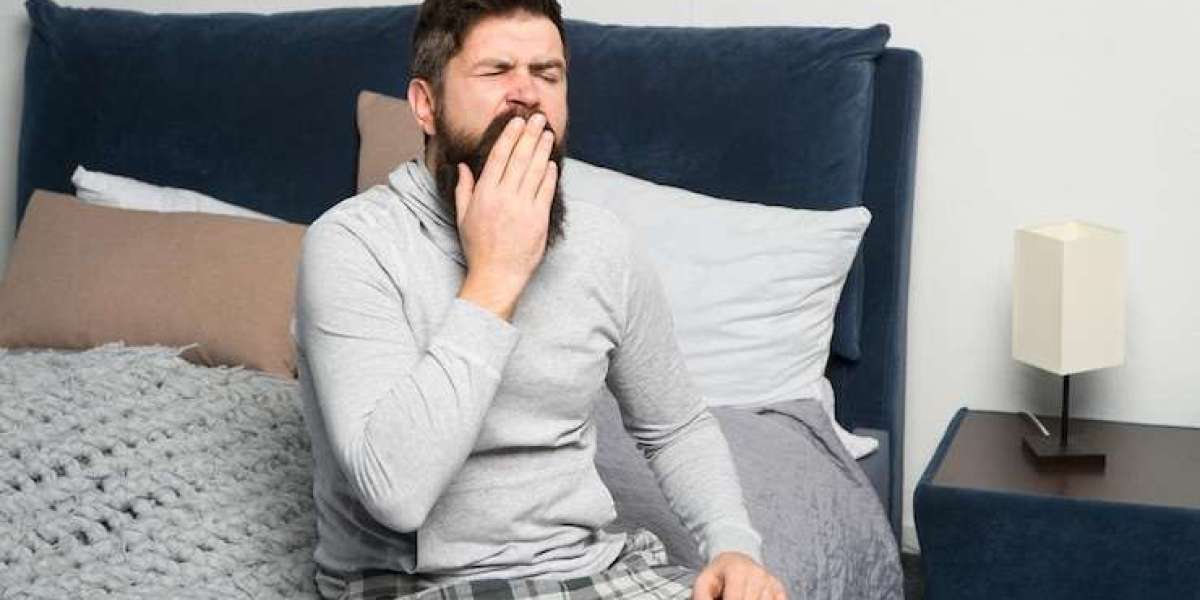In today's fast-paced world, the importance of sleep is often overlooked, and many individuals struggle with undiagnosed sleep disorders. One of the most common and disruptive conditions is sleep apnea, a disorder that affects millions globally. However, recognizing the symptoms of sleep apnea early can be challenging, especially because many of the signs are subtle or occur during sleep when you are unaware. A sleep apnea quiz is an excellent tool to help you evaluate your sleep health and determine whether you may be at risk for this condition. In this article, we will explore what a sleep apnea quiz reveals about your health and how taking the quiz can be the first step toward better sleep through effective treatments like CPAP supplies.
What is Sleep Apnea, and Why Should You Be Concerned?
Sleep apnea is a sleep disorder where your breathing repeatedly stops and starts during sleep. This interruption of airflow can last anywhere from a few seconds to a minute and can occur hundreds of times throughout the night. The most common type, obstructive sleep apnea (OSA), happens when the muscles in the back of your throat relax excessively, blocking the airway and preventing air from reaching your lungs.
While episodes of sleep apnea occur during sleep, their effects can be far-reaching. Sleep apnea not only disrupts your ability to get restorative rest but also leads to serious health issues such as:
Chronic fatigue
High blood pressure
Increased risk of heart disease and stroke
Memory and concentration problems
Diabetes risk
With such significant impacts, it’s essential to diagnose sleep apnea early. This is where a sleep apnea quiz can be extremely helpful.
How Does a Sleep Apnea Quiz Work?
A sleep apnea quiz is a simple yet effective tool that helps assess your risk for sleep apnea by evaluating common symptoms and lifestyle factors. While a quiz is not a substitute for a professional diagnosis, it serves as a useful screening tool. Most quizzes consist of a series of questions related to:
Snoring: A common indicator of sleep apnea, particularly loud, frequent snoring.
Daytime fatigue: Feeling excessively tired or sleepy during the day, despite a full night’s sleep.
Breathing interruptions: Whether you or a bed partner has observed that you stop breathing or gasp for air while you sleep.
Mouth breathing: Individuals with sleep apnea often breathe through their mouth during sleep due to nasal obstruction.
Lifestyle factors: Body weight, alcohol consumption, and smoking habits, which can increase the likelihood of sleep apnea.
By answering these questions, you can get an idea of whether your symptoms align with the characteristics of sleep apnea. If the results suggest a moderate to high risk, it's advisable to consult with a healthcare provider for a more thorough evaluation.
Key Insights from a Sleep Apnea Quiz
Once you complete a sleep apnea quiz, several key insights about your sleep health can be revealed. Here's a closer look at what a quiz might indicate:
1. Risk of Obstructive Sleep Apnea
The most significant takeaway from a sleep apnea quiz is whether you are at risk for obstructive sleep apnea (OSA). If your answers indicate symptoms like loud snoring, difficulty staying asleep, or frequent awakenings, it could point to OSA. The quiz helps you understand the likelihood of this condition and whether you should seek professional diagnosis and treatment.
2. Sleep Quality Assessment
A sleep apnea quiz also provides an indirect assessment of your overall sleep quality. The symptoms of sleep apnea, such as frequent wake-ups, poor rest, and daytime sleepiness, indicate that your sleep quality may be compromised. The quiz helps highlight these aspects, prompting you to take action and improve your sleep health.
3. The Impact of Lifestyle on Sleep
Many quizzes include questions about lifestyle factors such as alcohol consumption, smoking, and exercise. These factors can significantly influence the occurrence of sleep apnea or exacerbate its symptoms. Understanding how lifestyle habits affect your sleep is a crucial step in improving both your sleep and overall health.
4. Need for Further Evaluation
While a quiz provides valuable insights, it cannot replace a professional sleep study or medical evaluation. However, if the quiz points to a high risk of sleep apnea, it is a strong signal that you should pursue further diagnostic tests, such as a polysomnography (sleep study) or home sleep apnea test (HSAT).
CPAP Supplies: The Key to Managing Sleep Apnea
If you are diagnosed with sleep apnea, one of the most effective treatments is CPAP therapy. CPAP, which stands for Continuous Positive Airway Pressure, involves the use of a machine that delivers a steady stream of air through a mask, keeping the airway open during sleep. This therapy helps individuals with sleep apnea sleep soundly through the night and experience fewer interruptions in their breathing.
The key to successful CPAP therapy lies in the CPAP supplies you use. These supplies work in unison to ensure that you receive the optimal air pressure and comfort during sleep. Below are the essential components of CPAP therapy.
1. CPAP Machine
The CPAP machine is the most important piece of equipment in the therapy. It generates a continuous stream of air that helps keep your airways open, preventing the collapse that causes sleep apnea episodes. Modern CPAP machines are equipped with features like adjustable pressure settings, data tracking, and quiet operation, making them more user-friendly and effective.
2. CPAP Mask
The CPAP mask forms the direct interface between the machine and the user. It delivers the air pressure into your airways. There are several types of CPAP masks to choose from, including:
Nasal masks: Ideal for individuals who primarily breathe through their nose.
Full-face masks: Suitable for those who breathe through both their nose and mouth or require extra support.
Nasal pillow masks: These are more lightweight and less intrusive, ideal for people who want minimal facial contact.
A well-fitting mask is critical for ensuring the air pressure stays constant and preventing leaks.
3. CPAP Filters and Humidifiers
Filters play an important role in ensuring the air that flows into your lungs is clean and free from allergens and dust. Regularly replacing filters is essential for maintaining the efficiency of the machine.
Many people also use humidifiers with their CPAP machines. A humidifier adds moisture to the air, preventing dryness in the throat, nose, and mouth, which can be common side effects of CPAP therapy.
4. Tubing
The CPAP tubing connects the machine to the mask, delivering the air pressure. It is essential to keep the tubing clean and free of any cracks or damage, as leaks can reduce the effectiveness of the therapy.
The Benefits of Early Diagnosis and Treatment
Taking a sleep apnea quiz is just the first step toward diagnosing and treating sleep apnea. By identifying the symptoms early, you can take proactive steps to manage the condition before it leads to more serious health complications.
Effective CPAP therapy, supported by the right CPAP supplies, can dramatically improve your sleep quality, reduce daytime fatigue, and lower your risk of heart disease, stroke, and high blood pressure. The sooner you take action, the sooner you can start benefiting from these improvements.
Conclusion: Take Control of Your Sleep Health Today
In conclusion, evaluating your sleep health with a sleep apnea quiz is an essential step in identifying sleep apnea and understanding how it affects your well-being. If the quiz suggests you may be at risk for sleep apnea, seeking professional help for diagnosis and treatment is crucial. CPAP therapy, supported by the right CPAP supplies, can significantly enhance your sleep quality, improving your health and quality of life. Don’t wait for symptoms to worsen—take a sleep apnea quiz today and take the first step toward better sleep and better health!







